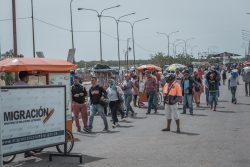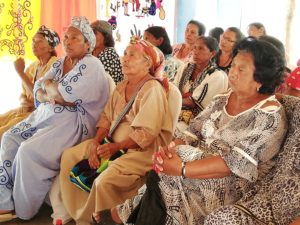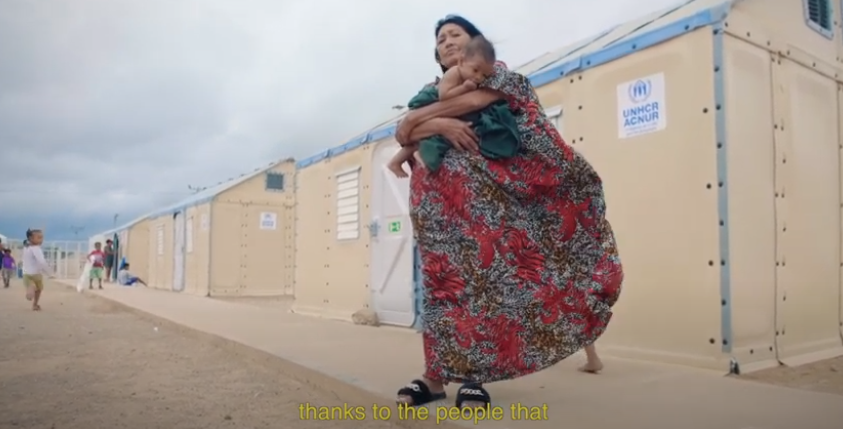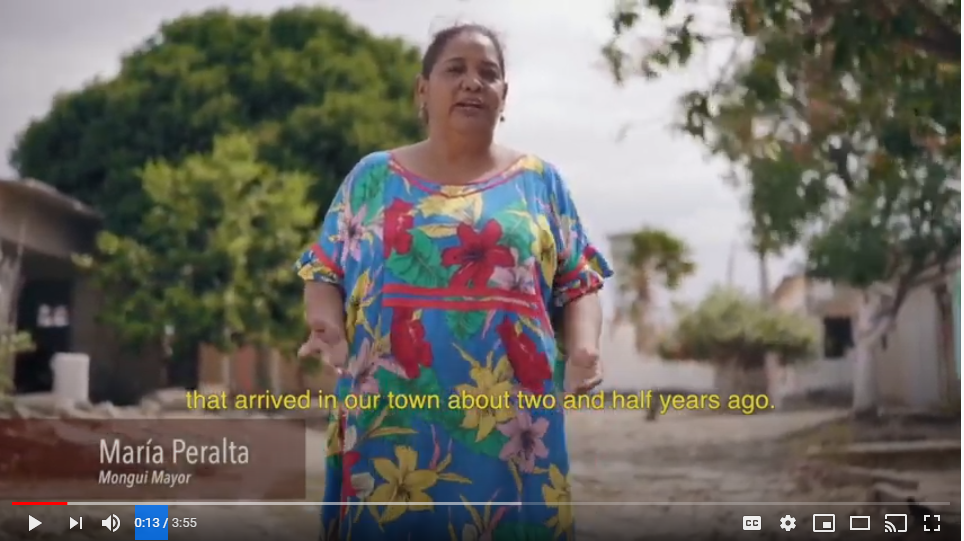South America
Malteser International Statement: The International Community Must Renew Its Commitment to Peace in Colombia
An alarming tide of violence and impunity has struck Colombia, bearing witness to the grim reality that collective efforts for peace, reconciliation, and development are in jeopardy. Seven massacres have taken place in the last two weeks, gripping the country in a state of fear reminiscent of the worst years of the civil conflict, which left 260,000 people dead and 7 million internally displaced. This resurgence of violence has been a steady threat that has intensified during the COVID-19 lockdown.
According to NGO Indepaz, 46 massacres have occurred this year, nearly matching 2019’s total. Additionally, 2020 has seen 166 human-rights defenders and social leaders murdered throughout the country. Since 2016, the year the Colombian government ratified the peace agreement with the FARC – nearly 1,000 leaders and advocates have been killed. The loss of peace advocates and civil-society leaders is catastrophic and needs to end.
The systemic killing of youth, particularly from Afro-Colombian and indigenous communities is a tragedy that will have far-reaching impact on progress and development in Colombia. It only serves to perpetuate divisions, collective trauma, and erode economic and social progress.

As a humanitarian organization active in Colombia since 2014, we believe that the international community has an important role to play in supporting peace and development in the country. The last several years have seen an increase in international NGO presence in response to the Venezuelan humanitarian crisis, which has pushed 1.6 – 1.8 million migrants and refugees out of their homes and into Colombia.
Any effective response to the migrant and refugee crisis in Colombia must consider the country’s need for investments in peace and social cohesion.
Here are some guidelines for international humanitarian work that could strengthen peace in Colombia:
- International aid for Venezuelan refugees and migrants must include Colombian host communities.
- Interventions must consider the triple nexus between humanitarian aid, sustainable development and peace.
- All humanitarian actors should consider the larger context of the peace process and how their interventions may strengthen or undermine it.
- Social cohesion must be mainstreamed in all programming.
- All actors must carefully analyze the potential risk and harm their interventions may bring (for example, engendering xenophobia by focusing exclusively on the Venezuelan population).
- The needs of all population groups must be considered and outreach and communication with indigenous communities must be collaborative and culturally competent.
We believe that both the development of Colombian rural communities and Venezuelan refugees and migrants is possible and should be prioritized. Xenophobia can only be overcome by investing in dialogue and exchange, and creating new comprehensive and inclusive opportunities for peace and development.
Our Experience Working in Collaboration with Wayuu Communities

Malteser International’s work in Colombia targets both, Colombian multi-ethnic rural communities and Venezuelan refugees and migrants. We focus on reducing barriers that Wayuu people face – be they from Colombia or Venezuela – as they are often forgotten and left behind. Currently, our activities seek to strengthen health systems as well as systems of peace and cohesion in the following ways:
- We aim to transform the rural health sector in La Guajira and make it more inclusive towards indigenous communities and to ensure access to basic health services (86% of the rural communities in La Guajira do not have access to healthcare).
- We provide medical and psychological services to both Venezuelans and Colombians without healthcare coverage and have launched an initiative for pregnant mothers and children under the age 5.
- We are strengthening rural development by investing in projects that increase food security, restore ecosystems and improve disaster preparedness. These initiatives incorporate training and capacity-building opportunities for rural youth and develop their leadership skills.
- We promote the integration of Venezuelan migrants and refugees into rural host communities, through investments in traditional housing and economic activities in which Colombians and Venezuelans can work hand-in-hand.
- We support cultural exchange, and peer-to-peer therapy in rural communities to reduce xenophobia and create new spaces of dialogue and exchange. These initiatives specifically target women and youth to build bridges beyond stigmatization and prejudice.
Our purpose as an organization rooted in Christian values and humanitarian principles is to bring health and dignity to all regardless of religion, background or political convictions. We see our role as one that can support both individual and collective healing by facilitating dialogue and understanding, while also delivering aid and investment in infrastructure. We encourage others in a similar position to do the same.
We recognize that Colombia is on a long and difficult path towards healing, yet the desire for peace and progress is shared among all people. It is paramount that the promise of hope that is inherent to youth be protected, their voices heard and never silenced.


